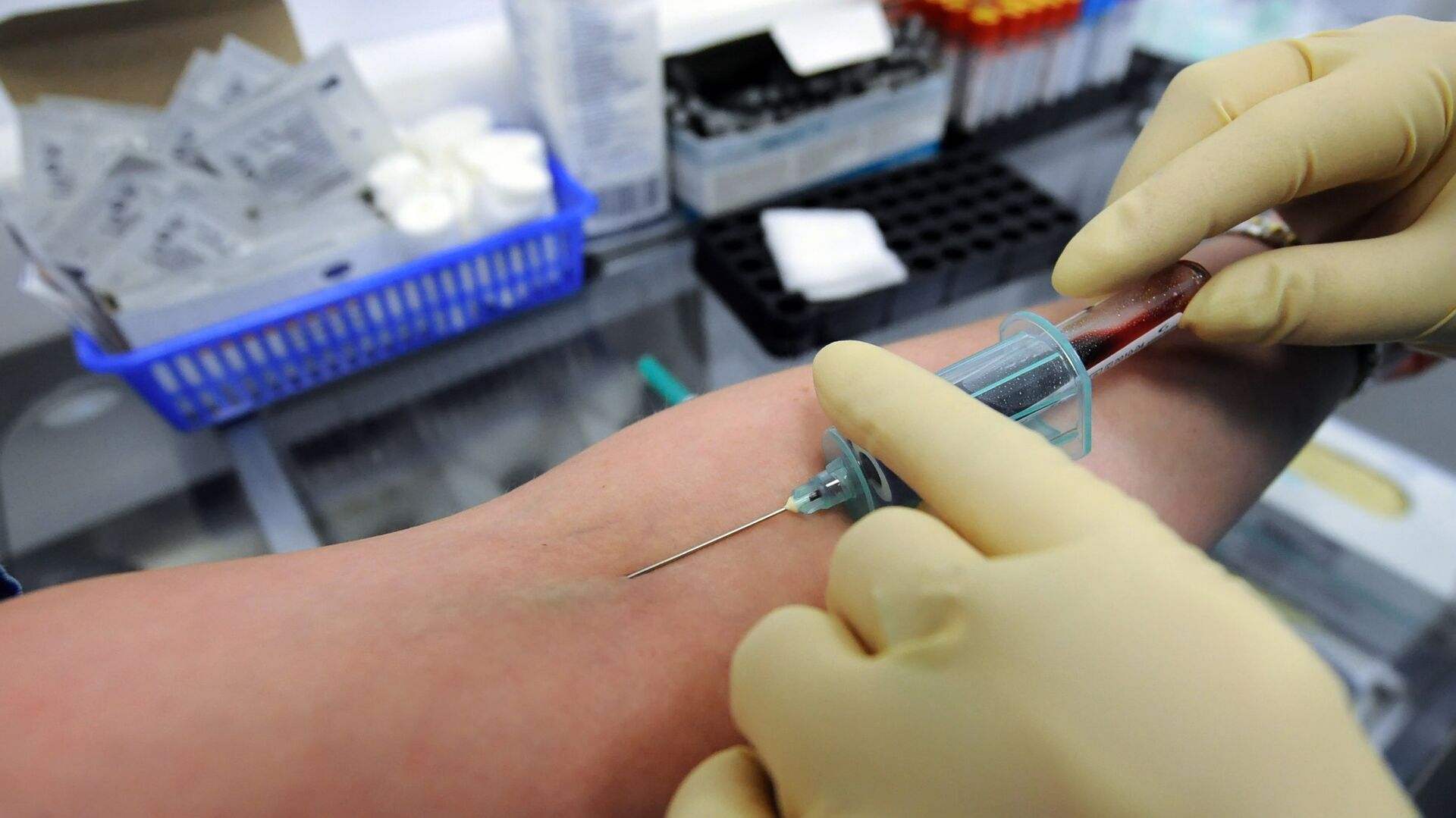https://sputnikglobe.com/20220507/scientists-discover-blood-biomarkers-that-can-signal-suicide-risk-1095339569.html
Scientists Discover Blood Biomarkers That Can Signal Suicide Risk
Scientists Discover Blood Biomarkers That Can Signal Suicide Risk
Sputnik International
According to the latest estimates from the World Health Organization, every 40 seconds an individual commits suicide. Suicide is the fourth leading cause of... 07.05.2022, Sputnik International
2022-05-07T23:50+0000
2022-05-07T23:50+0000
2022-05-08T00:01+0000
science & tech
research
blood
suicide
https://cdn1.img.sputnikglobe.com/img/103732/66/1037326690_0:268:3163:2047_1920x0_80_0_0_1d61798a69ae52b755eb7071d3118bb0.jpg
Special blood biomarkers that indicate the risk of suicide in people with depressive disorder were found by the Irvine-led team of researchers at the University of California, according to a study published in Translational Psychiatry.Scientists said that “blood gene expression is highly informative to understand molecular changes in suicide.” They have analyzed blood and brain samples that belong to people who committed suicide, as well as people who died in other circumstances.The team noticed that the first group had significant changes in the expression of genes, responsible for reactions to stress, along with circadian rhythms, immune responses, and the state of telomeres (participants at the ends of chromosomes that protect them from damage).The researchers said the identification of blood biomarkers is a key step toward developing blood tests that can determine how suicidal a person is.Scientists believe that the findings can be used in clinical practice to provide timely support for at-risk patients.
https://sputnikglobe.com/20220120/study-on-suicide-trends-in-the-us-shows-increased-need-for-service-accessibility-1092380771.html
Sputnik International
feedback@sputniknews.com
+74956456601
MIA „Rossiya Segodnya“
2022
News
en_EN
Sputnik International
feedback@sputniknews.com
+74956456601
MIA „Rossiya Segodnya“
Sputnik International
feedback@sputniknews.com
+74956456601
MIA „Rossiya Segodnya“
science & tech, research, blood, suicide
science & tech, research, blood, suicide
Scientists Discover Blood Biomarkers That Can Signal Suicide Risk
23:50 GMT 07.05.2022 (Updated: 00:01 GMT 08.05.2022) According to the latest estimates from the World Health Organization, every 40 seconds an individual commits suicide. Suicide is the fourth leading cause of death among people between the ages of 15 and 19, and rates have seen rapid growth in recent years despite numerous programs of mental support and awareness campaigns.
Special blood biomarkers that indicate the risk of suicide in people with depressive disorder were found by the Irvine-led team of researchers at the University of California, according to a study
published in Translational Psychiatry.
Scientists said that “blood gene expression is highly informative to understand molecular changes in suicide.” They have analyzed blood and brain samples that belong to people who committed suicide, as well as people who died in other circumstances.

20 January 2022, 00:13 GMT
The team noticed that the first group had significant changes in the expression of genes, responsible for reactions to stress, along with circadian rhythms, immune responses, and the state of telomeres (participants at the ends of chromosomes that protect them from damage).
The researchers said the identification of blood biomarkers is a key step toward developing blood tests that can determine how suicidal a person is.
“To our knowledge, this is the first study to analyze blood and brain samples in a well-defined population of MDDs demonstrating significant differences in gene expression associated with completed suicide,” said corresponding author Adolfo Sequeira, Ph.D., associate researcher in the Department of Psychiatry & Human Behavior at the UCI School of Medicine.
Scientists believe that the findings can be used in clinical practice to provide timely support for
at-risk patients.


